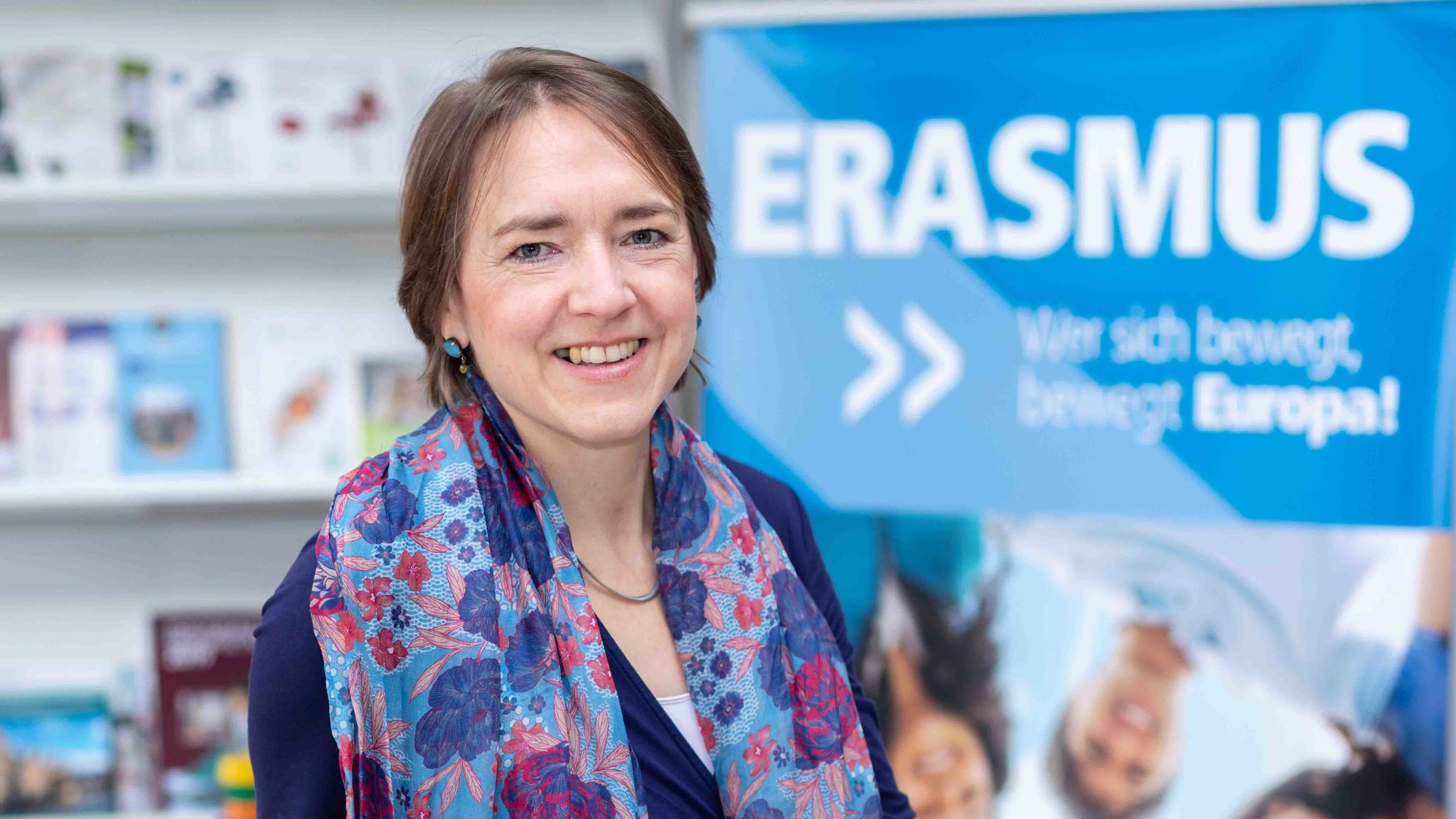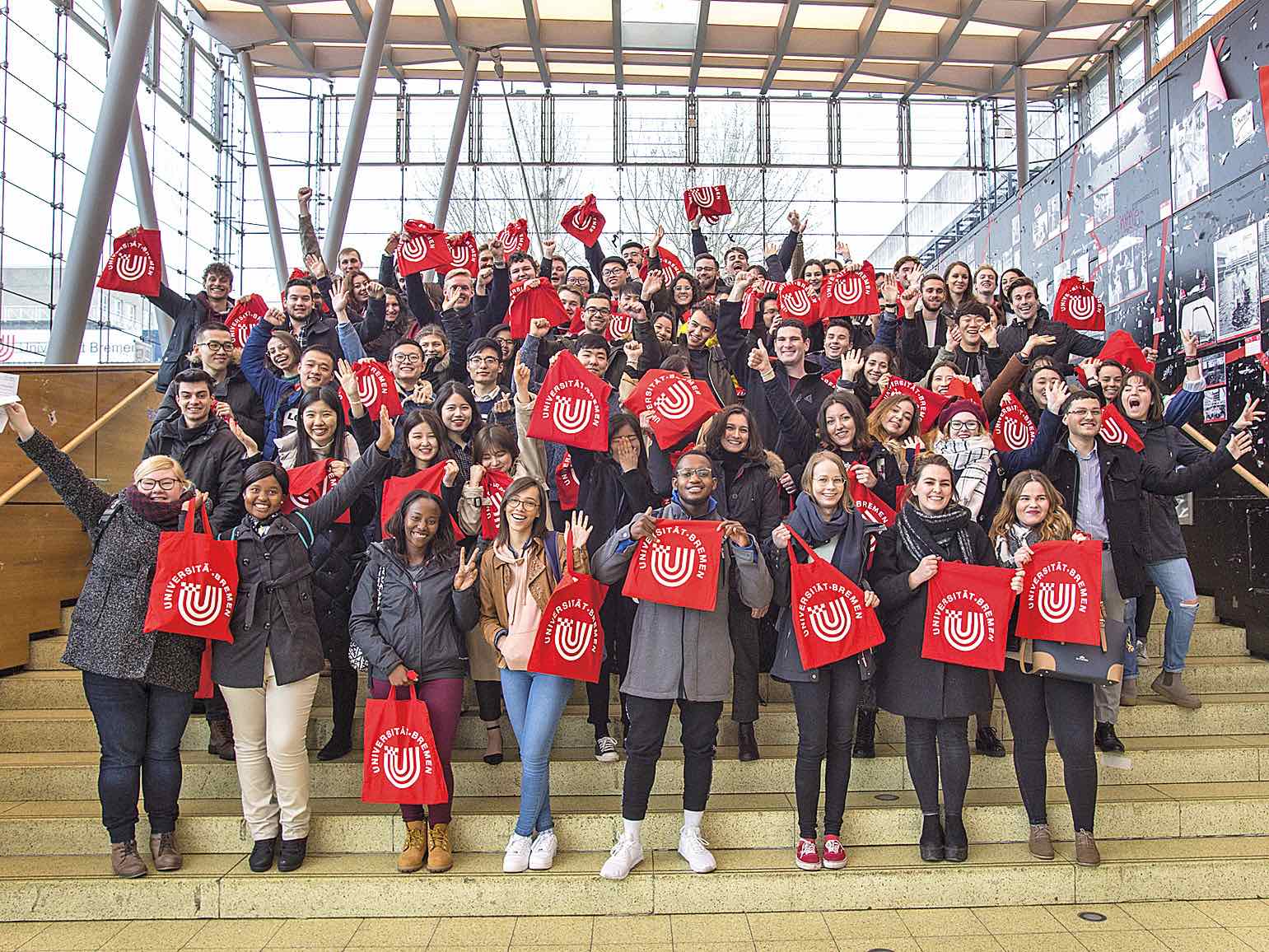
“ERASMUS is Europe’s Successful Program”
For many students, spending some time abroad is simply part of today’s academic experience.
The ERASMUS program in the EU makes it possible within Europe. It has existed since 1986. Barbara Hasenmüller coordinates the program at the International Office at the University of Bremen. During the interview, she remembers when she started the work 20 years ago, and describes the developments leading up to today.
Barbara Hasenmüller, what was the situation like at the end of the 1990s, for students who wanted to go abroad in Europe?
Barbara Hasenmüller: At the time, ERASMUS still went by the name Sokrates, and was available to students and teachers from the university only. Today, employees from administration and technology can also use the program to go abroad. The exchange numbers at the University of Bremen were much lower than they are now: Today, up to 400 students from the University of Bremen go abroad in Europe each year, whereas at the end of the 1990s, it was just over a hundred. A similar number of ERASMUS students came to us as well. Today, it is between 250 and 300 every year. The selection of partner universities was also smaller. In many countries, including Germany, it was not standard practice to teach in English. For that reason, most students wanted to go to Great Britain. It was, for instance, rather unusual for a German political scientist to study in Poland or Sweden. Over the years, additional states joined the EU, and took part in the ERASMUS project, and all of the universities used this impulse to undergo reform.
What exactly happened?
The universities renewed the structures of their courses and designed programs and events in English. Today, it is a matter of fact for students to go to Estonia, for example, without being fluent in the country’s language. They can study at a university or do an internship abroad. Their achievements abroad are recognized at their university at home. This was often still difficult before the reform.
What does the ERASMUS program represent today?
In the beginning, it had the reputation of being a party program. This is now a thing of the past. ERASMUS is internationally recognized. Since it started, about 4.4 million ERASMUS students have been promoted across Europe since 2017. This is huge. The EU invests a lot of money. To those in charge, it is clear that this is an important program that contributes to the awareness of a European identity. In the meantime, 34 countries participate in the program. It is now called ERASMUS and it includes the entire areas of education, youth, and athletics. In addition to mobility programs, there are also cooperation programs. The EU pilot project of the European network universities is also part of Erasmus+. The University of Bremen participates in it along with seven international partners (editors’ note: read more about it in the title story). Personally, I find: ERASMUS is the success program in Europe”.
What does ERASMUS achieve for the participants?
I am convinced that the experiences that students gather abroad are exceptionally formative for them. They learn about the living and working situations in their guest countries. At the same time, they develop an international network and create friendships with students around the whole world. I believe that this experience is important in order to develop a differentiated understanding of a country and different cultures. ERASMUS promotes greater solidarity within Europe through personal experience.
